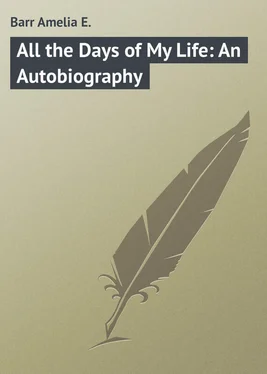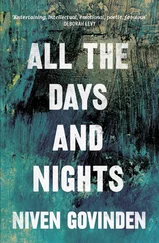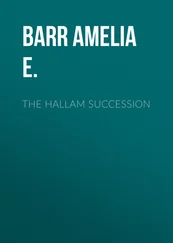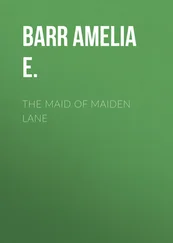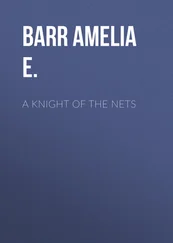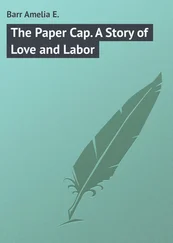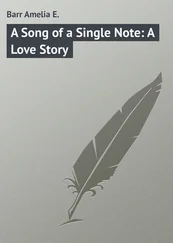Amelia Barr - All the Days of My Life - An Autobiography
Здесь есть возможность читать онлайн «Amelia Barr - All the Days of My Life - An Autobiography» — ознакомительный отрывок электронной книги совершенно бесплатно, а после прочтения отрывка купить полную версию. В некоторых случаях можно слушать аудио, скачать через торрент в формате fb2 и присутствует краткое содержание. Жанр: foreign_prose, foreign_language, на английском языке. Описание произведения, (предисловие) а так же отзывы посетителей доступны на портале библиотеки ЛибКат.
- Название:All the Days of My Life: An Autobiography
- Автор:
- Жанр:
- Год:неизвестен
- ISBN:нет данных
- Рейтинг книги:5 / 5. Голосов: 1
-
Избранное:Добавить в избранное
- Отзывы:
-
Ваша оценка:
- 100
- 1
- 2
- 3
- 4
- 5
All the Days of My Life: An Autobiography: краткое содержание, описание и аннотация
Предлагаем к чтению аннотацию, описание, краткое содержание или предисловие (зависит от того, что написал сам автор книги «All the Days of My Life: An Autobiography»). Если вы не нашли необходимую информацию о книге — напишите в комментариях, мы постараемся отыскать её.
All the Days of My Life: An Autobiography — читать онлайн ознакомительный отрывок
Ниже представлен текст книги, разбитый по страницам. Система сохранения места последней прочитанной страницы, позволяет с удобством читать онлайн бесплатно книгу «All the Days of My Life: An Autobiography», без необходимости каждый раз заново искать на чём Вы остановились. Поставьте закладку, и сможете в любой момент перейти на страницу, на которой закончили чтение.
Интервал:
Закладка:
“And what then, Doctor?”
“If you marry well, the Board will not count its loss in your gain.”
We talked over this subject thoroughly, and I assured him of my perfect satisfaction, and even pleasure, in the proposition. “If that is so,” he said, “go and pack your trunk, take it in the morning to the Easton Square Railway Station, and leave it in the baggage room; then come to me at this address,” and he wrote a few lines for my direction. “The Board meets there to-morrow at ten o’clock to examine applicants, and you will be questioned a little, no doubt, but I think they will not puzzle you.”
“Not unless they are grammarians, and ask me to parse a sentence.”
As I was leaving he asked, “Have you money enough to take you to London?”
“I have fourteen shillings,” I said. “Miss Berners can give me nothing.”
“Fourteen shillings is enough. The rest of your traveling expenses will be provided.”
So I went back to the defunct school, and packed my clothes, and helped Miss Berners to pack all her personal belongings. We talked very little. The past was done with, the future uncertain, but she promised to send the money due me to my mother as soon as she saw her friends in Reading.
“Will you remain in Reading?” I asked.
“No!” she answered. “I will take passage on a good ship, that intends to be at sea for a year, or more. I wish to be where I can never get a bill, or a dunning letter, or hear the postman’s knock.”
We rose early in the morning, and had a hurried cup of coffee and then said good-bye. It was an uneasy and uncomfortable parting, and I was astonished that I could not feel any regret in it. There was only a sense of something finished and done with, and I believe Miss Berners forgot me, as soon as my cab was out of sight. But within a week she sent the money owing me, and said she was going to Louisiana. At that time Louisiana was as little known to the average Englishman or woman, as Timbuctoo. We asked a young man who had been shooting game in Canada, “Where is Louisiana?” and he answered, “It is one of the West Indian Islands, belonging to France.” Then I reflected that Miss Berners spoke French pretty well, and could probably take care of herself.
I left my luggage as directed by Dr. Farrar, and went to the Wesleyan Board of Education. It had begun to rain by this time, and the place looked mean and unhappy. But there was a good fire in the small waiting-room, and three young men, and one young woman already there. For a moment I had a sickening terror of what I was doing, but I quickly put my foot upon it. “Why art thou cast down, O my soul?” I asked almost angrily, and my soul knew better than to shirk, or shrink before that question.
All was more favorable than I expected. Dr. Farrar had evidently spoken to the Board, which consisted of six or eight nice, clerical old gentlemen. Probably all of them had daughters of their own, for they were very kind, and before considering my case, spoke in the most sympathetic manner of my father’s affliction. Every one had some pleasant memory of him, or some particular message to send. And they were so cheerful, that I looked into the faces of my inquisitors with confiding smiles. Upon the whole, the examination was an easy one, and nobody named grammar. I came off with flying colors, and I really think the Board believed themselves to have secured an unusually bright and clever teacher. There was nothing more to do, except sign a paper enrolling myself among the Wesleyan pupils at the Glasgow Normal School, which paper also contained the Board’s obligation to pay me one pound weekly. My traveling expenses were given to me in hand, and then I bid all good morning, feeling truly in my heart the sweetest and strongest gratitude, for their kindness towards me.
I got a train for Kendal about one o’clock, but did not arrive there until late. The door had been locked, and Mother unlocked it with such a joyful cry of “Milly! Milly! Milly!” as brought every one to meet me. I shall never forget that home-coming. Father came down stairs again, the fire was rebuilt, and a nice little meal prepared, while Jane, Mary and Alethia hung round me as if I had been lost and found again.
The best part of that happy meeting was the pleasure it gave Father to hear of the sympathy and praise, that had followed the mention of his name to the Board of Education. I repeated every pleasant word twice over. He did not ask me to do so, but I knew the friendly messages were the sweetest music in his ears. And when I finally told them I was going to Glasgow, Father said,
“It is a Providence, Milly! I had a letter not a month ago from my old friend John Humphreys, who is now Collector of Excise for the port of Glasgow. Either he, or Mrs. Humphreys, will look for proper rooms for you. They will know just what you want.”
The letter to the Humphreys asking this favor was written at once, and in four days we received something like the following answer to it:
Dear William,
We have rented your daughter a parlor and bedroom with the sister of my grocer. His shop is in Sauchiehall Street, and they live above it. They are most respectable people, and have no other boarders. It is also near the school. She will be very comfortable there. Let us know exactly when she is coming, and either Mrs. Humphreys or I will meet her train, and see her safely housed.
Your true friend, John Humphreys.Then it was decided I should go to Glasgow on the third of January, 1849, by the ten o’clock morning train, which would allow me to reach my destination before it was dark. Until that day I rested myself body and soul in the sweetest influences of love and home, and when the third of January came, I was full of new strength and new hope, and ready for whatever had been appointed to happen unto me.
My dear mother went with me as far as Penrith. She intended to visit my brother Willie’s grave, and perhaps spend a night with her friend, Mrs. Lowther. Fortunately we had the railway carriage to ourselves and, oh, how sweet were the confidences that made that two hours’ drive ever memorable to me! At Penrith we parted. Penrith is a mile or more from the Caledonian Line, but there were vehicles there to meet the train, and I watched Mother pass from my sight with smiles, and the pleasant flutter of her handkerchief.
Then by a real physical effort I cast off the influences I had indulged for a week, and began to allow my nature to imbibe the strength of the hills through which I was passing – hills beyond hills, from blue to gray – hills sweeping round the horizon like a great host at rest. Down their sides the living waters came dancing and glancing, and, oh, but the lift of His hills, and the waft of His wings, filled my heart with joy and strength. Now and then we passed a small stone house, rude and simple, with a moorland air, and I felt that the pretty English cottages with their thatched roofs and blooming gardens, would have been out of place in the silent spaces of these mountain solitudes.
It grew very cold as we neared Carlisle. Every one I saw was buttoned-up and great-coated, and I was sensible of as great a change in humanity as in nature. I had missed all the way from Kendal the workingman’s paper cap, the distinctive badge of labor in those days. If there were workingmen around Carlisle they did not wear it. All the men I saw wore large caps of heavy blue flannel, sometimes bordered with red – an ugly head-gear, but apparently just the thing wanted by the big, bony men who had adopted it. I saw a crowd of them at Gretna Green, where a woman got into the train, and rode with me as far as Ecclefechan. She was not a pleasant woman, but I asked her about this big blue cap, and with a look of contempt for my ignorance, she answered, “They are just the lad’s bonnets. Every one wears them. Where do you come from?”
Читать дальшеИнтервал:
Закладка:
Похожие книги на «All the Days of My Life: An Autobiography»
Представляем Вашему вниманию похожие книги на «All the Days of My Life: An Autobiography» списком для выбора. Мы отобрали схожую по названию и смыслу литературу в надежде предоставить читателям больше вариантов отыскать новые, интересные, ещё непрочитанные произведения.
Обсуждение, отзывы о книге «All the Days of My Life: An Autobiography» и просто собственные мнения читателей. Оставьте ваши комментарии, напишите, что Вы думаете о произведении, его смысле или главных героях. Укажите что конкретно понравилось, а что нет, и почему Вы так считаете.
